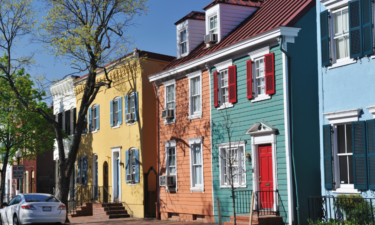Urban communities can assume an extraordinary part in growing admittance to clean energy in BIPOC and low-pay networks. As they seek after their perfect energy objectives, urban communities should set up a scope of drives from clean energy plans to metropolitan obtainment to residential solar projects to lower their emanations while additionally boosting community benefits like superior air quality, better well-being results, and production of green positions for the individuals who need them most.
The following are seven different ways regional authorities can go past lowering GHG outflows and develop value and community benefits into their spotless Green Mountain Energy reviews drives:
1) Draw in with community individuals to characterize issues and co-foster arrangements.
Truly coordinated efforts with low-pay and BIPOC community individuals ought to start in the arranging stage, with the discourse around issues and needs. Steady commitment and interest at all stages — from information assortment through situation arranging and activity — is basic to defeating difficulties and arriving at fair results.
The City of Austin’s 2020 Environment Value Plan utilizes this methodology, zeroing in on value and community joint effort all along. Additionally, by working with community individuals to foster measurements and targets, regional authorities can openly and straightforwardly track progress towards community objectives like fair asset allotment, lower energy bills, and neighborhood responsibility for resources.
2) Guarantee that spotless energy drives don’t demolish existing imbalances.
In any event, when expectations and information are great, the results of clean energy drives may either neglect to make a more fair city or even fuel existing imbalances. For instance, the specialized and information-driven suggestions normally found in clean energy plans might actually add to “green improvement,” when manageability drives cost lower-pay occupants out of their urban communities.
3) Direct clean energy subsidizing to BIPOC and low-pay networks.
Subsidizing zeroed-in clean energy drives should have value incorporated into their plan, with explicit objectives and estimations to guarantee supports go where they’re required most. In Oregon, the Portland Clean Energy Community Advantages Asset sent off an award program in 2021 explicitly for the environmental activity that propels racial and civil rights. All awards should help a needy populace inside the community, characterized in the regulative code to incorporate BIPOC, low-pay, individuals with handicaps, and other underserved gatherings. An award board comprised of inhabitants addressing these needs populaces give financing proposals. Their inclusion guarantees that subsidizing upholds community-picked projects, that BIPOC and bleeding edge networks are involved from beginning to end, and that assets are contacting individuals who need them most.
4) Influence metropolitan renewable energy contracting to accomplish community co-benefits.
Regional authorities can utilize their purchasing power and contracting cycles to grow influence past a cleaner matrix and diminished GHG outflows. As urban communities sign progressively enormous off-site power buy arrangements (PPAs) for renewable energy, they ought to remember value standards for the bid assessment process, as Chicago did in one of the biggest and most imaginative civil renewable energy requests up to this point.
5) Utilize solar advancement to make top-notch green positions.
Government-drove nearby solar improvement projects offer a critical pathway for clean energy to help BIPOC and low-pay networks through neighborhood work preparation and business.
6) Further develop well-being results by conveying clean advances.
Cutting-edge networks including low-pay and BIPOC are lopsidedly affected by air contamination from transportation and fossil-filled power.

7) Eliminate cost boundaries to solar for energy-troubled inhabitants.
When matched with energy proficiency redesigns, residential solar projects can assist those residing in more seasoned, less productive lodging who with spending a lopsided portion of their salaries on energy charges Washington, D.C., for instance, is working with associations inside the city to offer no-cost solar establishments to single-family, pay qualified families, fully intent on turning out 100,000 low-and moderate-revenue families with privately created clean energy.




